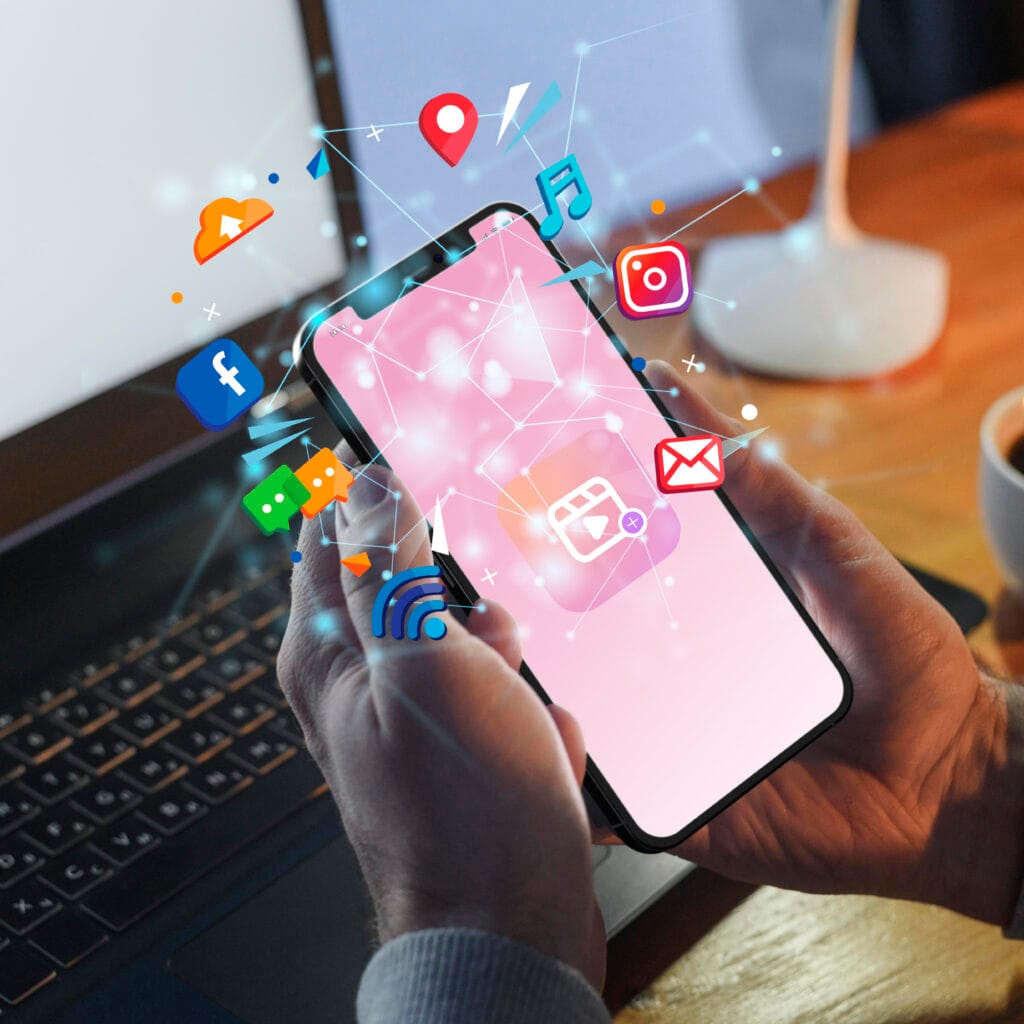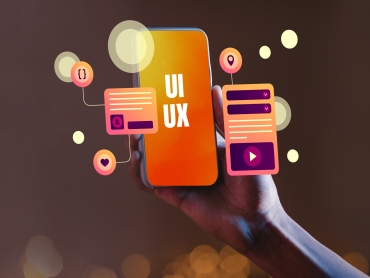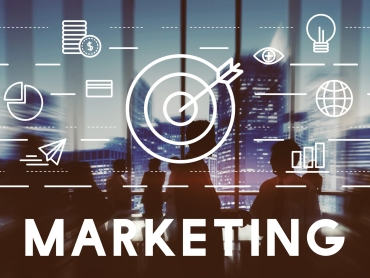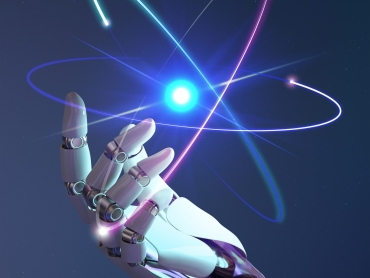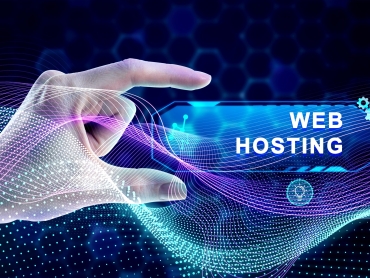Artificial intelligence (AI) is no longer just a futuristic concept—it’s the driving force behind the evolution of digital marketing. From the ads we see online to the chatbots that help us shop at midnight, AI is shaping customer experiences in ways that were unimaginable just a few years ago. Brands are now using AI in digital marketing to create more personalized campaigns, improve efficiency, and achieve better results.
This article explores how artificial intelligence marketing is revolutionizing the industry, the opportunities it creates, the challenges it brings, and what the future of digital marketing in 2025 looks like.
The Rise of AI in Digital Marketing
Not long ago, marketing decisions were based largely on intuition and guesswork. Companies would spend huge sums on broad advertising campaigns, hoping to catch the attention of the right audience. Today, thanks to AI, marketing is far more data-driven and precise. Algorithms can analyze customer behavior, predict future actions, and optimize campaigns in real time.
This transformation means businesses no longer have to rely on “spray and pray” tactics. Instead, they can use AI-powered advertising to deliver targeted messages to the right people at the right time.
Personalization at Scale
One of the most powerful benefits of artificial intelligence marketing is personalization. Customers expect more than generic ads—they want brands to understand their needs and interests.
AI makes this possible by analyzing browsing history, purchase patterns, and online behavior. For example:
Personalized Recommendations: When you see a product suggested that matches your recent searches, that’s AI at work.
Dynamic Emails: Instead of one-size-fits-all campaigns, emails can now feature personalized subject lines, product recommendations, and offers.
Tailored Web Experiences: Websites adapt in real time, showing content and promotions most relevant to each visitor.
This level of personalized marketing with AI not only improves customer satisfaction but also increases conversion rates and loyalty.
Smarter Decision-Making with AI
AI empowers marketers to make smarter, faster, and more accurate decisions. By processing vast amounts of data, AI identifies patterns and predicts what customers are most likely to do next.
Some key applications include:
Predictive Analytics: Forecasting customer demand, seasonal trends, and buying behaviors.
Audience Segmentation: Grouping customers into specific segments for more targeted campaigns.
Real-Time Optimization: Automatically adjusting bids, budgets, and ad placements for maximum ROI.
What used to take teams of analysts weeks can now be done in seconds with the help of AI.
AI-Powered Customer Support
Another area where AI shines is customer service. Chatbots and virtual assistants are now a staple in digital marketing strategies. Available 24/7, these AI-driven tools help businesses provide instant support while reducing costs.
Examples include:
Live Chatbots: Guiding customers through purchases, answering FAQs, and tracking orders.
Voice Assistants: Supporting voice search and smart speaker interactions.
AI-Powered Help Desks: Prioritizing and routing customer inquiries to the right department.
Instead of waiting hours—or even days—for a response, customers can get instant answers, improving satisfaction and brand trust.
Content Creation and Social Listening
In 2025, AI is also helping marketers create content and manage conversations. Tools powered by AI can generate blog posts, headlines, product descriptions, and even ad copy. While human creativity remains essential, AI speeds up production and ensures messaging is optimized for search engines and audiences.
Additionally, AI enables social listening—the ability to track online conversations about a brand. By monitoring mentions, reviews, and feedback across social platforms, businesses gain real-time insights into customer sentiment. This allows them to respond quickly, manage reputation, and adjust strategies.
Smarter (and Cheaper) Advertising
Traditional advertising often meant wasting resources on audiences that weren’t interested. With AI-powered advertising, marketers can deliver more precise campaigns at a lower cost.
Benefits include:
Targeted Ads: Delivering messages to people who are most likely to engage.
Budget Efficiency: Reducing wasted ad spend by focusing only on high-potential leads.
Performance Tracking: Measuring campaign success with greater accuracy.
This makes advertising not only smarter but also more affordable for businesses of all sizes.
Real-World Applications of AI in Marketing
You may already be interacting with AI daily without realizing it. Some common examples include:
Online Shopping: Personalized product recommendations and dynamic pricing.
Food Delivery Apps: Chatbots assisting with orders and payments.
Search Ads: Seeing ads related to your most recent search queries.
Streaming Services: AI curating shows and movies based on your viewing habits.
These real-world applications highlight how deeply AI is embedded in modern consumer experiences.
Challenges and Ethical Considerations
Despite its benefits, using AI in digital marketing comes with challenges:
Privacy Concerns: Collecting and analyzing customer data raises issues of transparency and consent.
Bias and Fairness: Algorithms may unintentionally reinforce stereotypes or exclude certain groups.
Dependence on Technology: Overreliance on AI can reduce the human touch in customer relationships.
Need for Oversight: Human supervision is essential to ensure AI tools are used responsibly.
Balancing innovation with ethics is crucial for sustainable growth.
Why AI in Marketing Matters
AI is not about replacing humans; it’s about making marketing more human-centered. By automating repetitive tasks and enhancing personalization, AI allows marketers to focus on creativity, strategy, and relationship-building.
In 2025 and beyond, expect to see:
Even more personalized experiences.
Smarter automation across all digital platforms.
AI tools that empower marketers instead of replacing them.
Greater attention to ethics, privacy, and inclusivity.
The future of digital marketing in 2025 is one where AI and human creativity work hand in hand.
Conclusion
Artificial intelligence has transformed digital marketing from guesswork into precision. Through personalization, predictive analytics, chatbots, content creation, and smarter advertising, artificial intelligence marketing is reshaping the way brands connect with customers.
The businesses that thrive will be those that embrace AI responsibly—using it not just to sell, but to create genuine, people-first experiences.
The future is already here, and thanks to AI in digital marketing, it’s brighter than ever.

